1731 Secrets spared and shared
Don’t Tell: Family Secrets
by Donna McCart Sharkey and Arleen Paré, editors
Bradford, ON: Demeter Press, 2023
$44.95 / 9781772584240
Reviewed by Mary Ann Moore
*
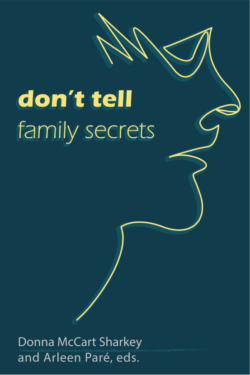 Sisters Donna McCart Sharkey and Arleen Paré have gathered contributions of essays and poetry from sixty-one writers for Don’t Tell: Family Secrets. McCart Sharkey who grew up in Montreal and now lives in Ottawa is the author of Falling Together: A Family’s Memoir of Mental Illness and Grief and Always with Me: Parents Talk About the Death of a Child. Paré is a Victoria writer with nine collections of poetry including a recent chapbook. She has won several awards for her work including the Victoria Butler Book Prize and a Governor General’s Award for Poetry.
Sisters Donna McCart Sharkey and Arleen Paré have gathered contributions of essays and poetry from sixty-one writers for Don’t Tell: Family Secrets. McCart Sharkey who grew up in Montreal and now lives in Ottawa is the author of Falling Together: A Family’s Memoir of Mental Illness and Grief and Always with Me: Parents Talk About the Death of a Child. Paré is a Victoria writer with nine collections of poetry including a recent chapbook. She has won several awards for her work including the Victoria Butler Book Prize and a Governor General’s Award for Poetry.

The 372-page anthology begins with a charming essay entitled “Movies — The Secret Sin” by Ralph Friesen who lives in Nelson. The writer and former therapist grew up in Steinbach, Manitoba where, in the 1940s and 1950s, it was “almost exclusively” a Mennonite community. Going to the movies was a sin.
When looking at his father’s diaries written before Ralph was born, he found there were entries about the movies his father, a pastor, had seen. How could that be?! There were at least five seen “on a movie-watching spree” during a ten-day period in Winnipeg in May 1930.
Friesen spoke to his siblings about their own secret movie experiences and they all had them. He once told his parents, at around twelve years of age, that he was going to the museum when he had accompanied them to Winnipeg. Instead, he went to the Rialto to see a movie called Beneath the 12-Mile Reef.
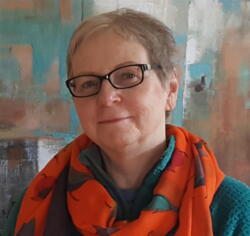
Inherited papers are one way to uncover family secrets as co-editor Donna McCart Sharkey did regarding her mother’s family cottage which her father called Shangri-La, also the title of her essay. She, at eleven, and her sister, learned they weren’t going to be going to the cottage for their summers any more. Upon retirement her mother’s brother moved into the cottage and following his death, the deed to the property was found. Her mother’s part ownership was sold to her brother for one dollar the year McCart Sharkey turned eleven.
Frances Rooney, in her essay “Grief,” tells of papers found in the basement of her deceased father’s house that included a birth certificate for a baby who had lived four days and had never been spoken of. Her late mother believed “grief is nothing but self-pity.”

We now live in an era when we know giving voice to our grief is of benefit to our health. Many of us have learned that our bodies hold many memories.
“We all have secrets, even — maybe especially — the ones that we hide from ourselves,” David Pimm, who grew up in London, England and lives in Vancouver, says in his essay “Umbilical Noose.”
While he was having a massage treatment, a body memory returned as the therapist “haltered” Pimm’s neck. As “something” with his neck had been around a long time, Pimm talked to his mother about it and learned that his sister had once had her hands around his neck when Pimm was still in his crib.
“Secrets can be a hiding place for safety. A final resort,” Pimm says. There were many family secrets and even now he’s reluctant to reveal what his mother revealed to him — “and this despite her death several years ago at age ninety-three and a half.”
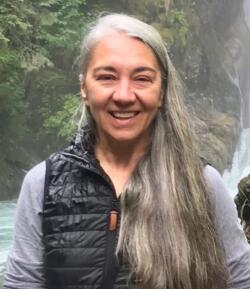
Readers may recognize Michelle Poirier Brown’s story in “Understanding My Face” if they have read her book of poetry, You Might Be Sorry You Read This reviewed here.
Poirier Brown, a Cree Métis writer living in Vernon, writes in her essay of a phone call from her sister, who had been doing family research, and who proclaimed: “Guess what. We’re Indians.” Previously, Poirier Brown had told herself she looked “like an Indian” when she was having an “ugly day.” After the phone call, her husband encouraged her to “experiment with identity.”
A man called Garry with whom Poirier Brown worked at the negotiating table for the Columbia Basin Accord said in response to something she said: “Yeah, well, that’s because you’re Cree.”
Poignant and powerful is the last section of her essay in which she travels to Moose Lake, Manitoba for a naming ceremony at a fasting camp. Poirier Brown was there to “lay claim to an identity I’d been told I was entitled to embrace.” Her name, learned in “conversational tones” is kîsikakohp. In English, her name is Skyblanket or Skyblanket Woman.
“A name is a medicine and a teacher,” Poirier Brown was told.
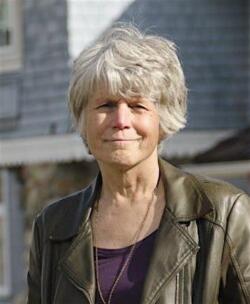
Judy LeBlanc writes in her braided essay, “In This Adaptation,” of her mixed Coast Salish/ European heritage and of the book and film version of The Secret Garden.
The novel by Frances Hodgson Burnett was published in 1911, the same year LeBlanc’s maternal grandmother was born.
In some of the essays, writers tell of silences rather than secrets which was the case for LeBlanc. She has vague memories of Saanich cousins and “an old uncle from the Tsartlip reserve.” It’s not that her mother denied the Saanich connection, “only that it wasn’t talked about. “
That “old uncle” was Gabriel Bartleman, a respected W̱SÁNEĆ elder.
LeBlanc learned more about her maternal great grandparents and one of her great-great-grandparents as she continued her research through family papers and online resources. Her essay is a fascinating story of discovery and reclamation.

In her own garden in a rural Vancouver Island community, LeBlanc and her husband remove black plastic meant to “smother the unchecked growth” at the edge of a temperate rainforest. They “free trapped and choked roots . . . enabling the return of those plants native to our ecosystem: salal, evergreen huckleberry, and sword fern.”
Referring back to The Secret Garden, LeBlanc says: “A secret becomes an ugly starved thing.”
A reclaiming also goes on in Betsy Warland’s essay, “Cover Story” as she explores the “erasure of our family authors.”
Cornelia Hoogland uses references to fairy tales and poets to probe family stories.
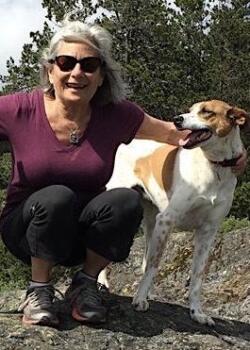
Nancy Issenman writes of anti-semitism and betrayals that changed the course of family events in “May Her Memory.” The memory is of Issenman’s biological grandmother buried in Mount Royal Cemetery in Montreal. Sarah Bella died a little over two weeks after birthing the writer’s mother Belle in 1912.
When Issenman and a couple of family members placed a rock on her grandmother’s gravestone, they said in the Jewish tradition, “May her memory be a blessing.”
As Issenman says, if her mother hadn’t gone to New York City to study nursing as no Montreal nursing schools would admit Jews, Belle wouldn’t have met the writer’s father and this story wouldn’t have been written.
In the case of Cynthia Woodmam Kerkham, whose essay is entitled “Went West,” she also wouldn’t have “existed in this form” if her grandparents hadn’t relocated to British Columbia from Nova Scotia.
The family secret was revealed when her mother reapplied for a passport to go to Mexico on vacation and learned she had been born four months earlier than her parents had told her – September 1924, not January 1925.
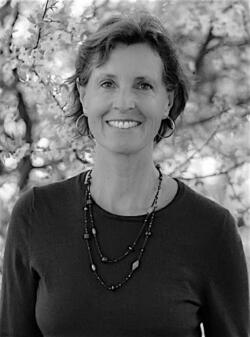
Her mother suffered a sense of betrayal and Woodman Kerkham realizes “the magnitude of the secret” which “radically altered our family’s map. My grandfather’s life was severed from his calling and from his expected place of inheritance. Both Harry and Jennie were pitched into a life of financial struggle and banishment from family and friends.” Her “mother’s hidden birth was always a tender topic for her.”
And yet in the seventies, Woodman Kerkham was pregnant before marriage. She married the baby’s father in September and their daughter was born in January. “There was no tearing apart, no running across the continent, no loss of roots.”
That several of the writers I’ve referred to are also poets is evident in their careful, imaginative approach to difficult stories. Poetry in the anthology includes works by John Barton, Wendy Donawa, Susan Braley, Joan Conway, and Christine Smart – all British Columbia poets.
When family secrets are revealed, the long-suffering bearers of them, even if they’ve passed on, can take a deep breath so that a collective, healing sigh can be felt through the generations.
*

Mary Ann Moore is a poet, writer and writing mentor who lives on the unceded lands of the Snuneymuxw First Nation in Nanaimo. Her book of poetry is Fishing for Mermaids (Leaf Press, 2014), Moore leads writing circles and has published two writing resources: Writing to Map Your Spiritual Journey (International Association for Journal Writing) and Writing Home: A Whole Life Practice (Flying Mermaids Studio). She writes a blog here. Editor’s note: Mary Ann Moore has also reviewed books by Michelle Poirier Brown, and Celia Haig-Brown, Garry Gottfriedson, Randy Fred, & the KIRS Survivors for The British Columbia Review.
*
The British Columbia Review
Publisher and Editor: Richard Mackie
Formerly The Ormsby Review, The British Columbia Review is an on-line book review and journal service for BC writers and readers. The Advisory Board consists of Jean Barman, Wade Davis, Robin Fisher, Barry Gough, Hugh Johnston, Kathy Mezei, Patricia Roy, Maria Tippett, and Graeme Wynn. Provincial Government Patron (since September 2018): Creative BC. Honorary Patron: Yosef Wosk. Scholarly Patron: SFU Graduate Liberal Studies.
“Only connect.” – E.M. Forster
10 comments on “1731 Secrets spared and shared”
This is a very timely book for me. My son and I have just published our memoirs, and there has been a mixed response from family members. A Hole in our Hearts by Vonda Peterson and Kelly Neville (Friesen Press, 2023).
I’m looking forward to reading Don’t Tell: Family Secrets. A writer/poet friend in the Strathcona Place Writers Group, Phyllis Shuell, has a piece in it.